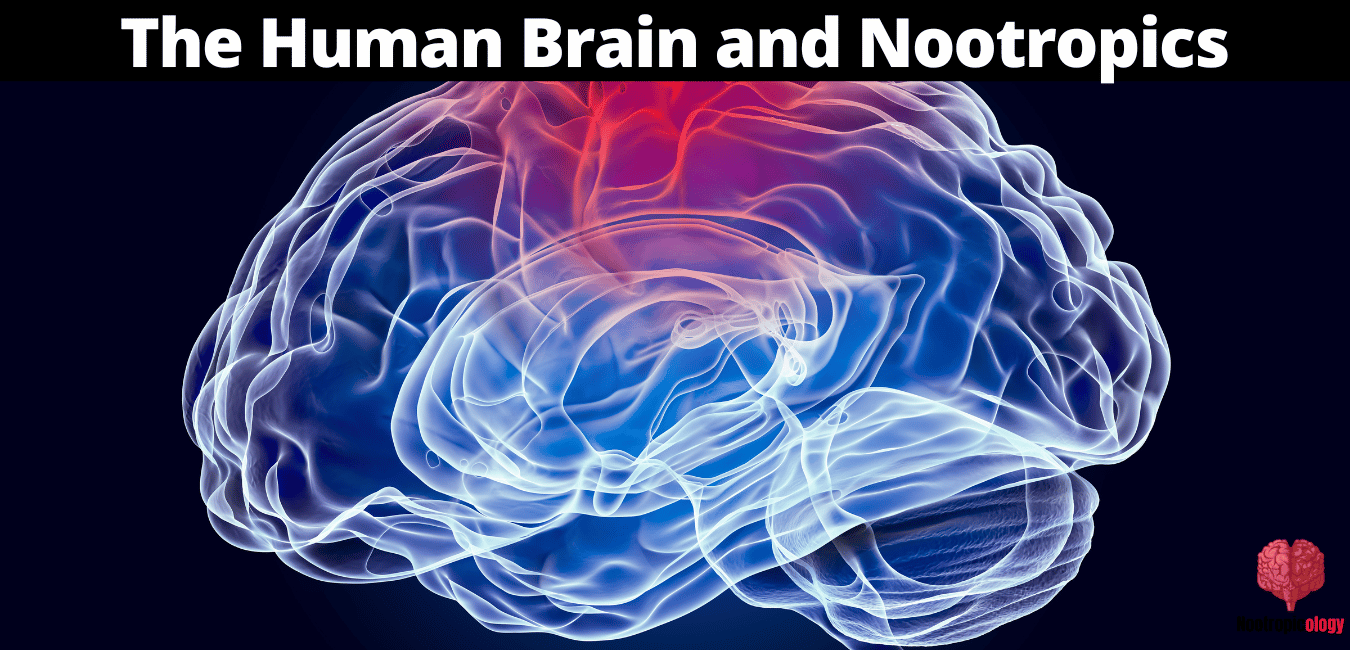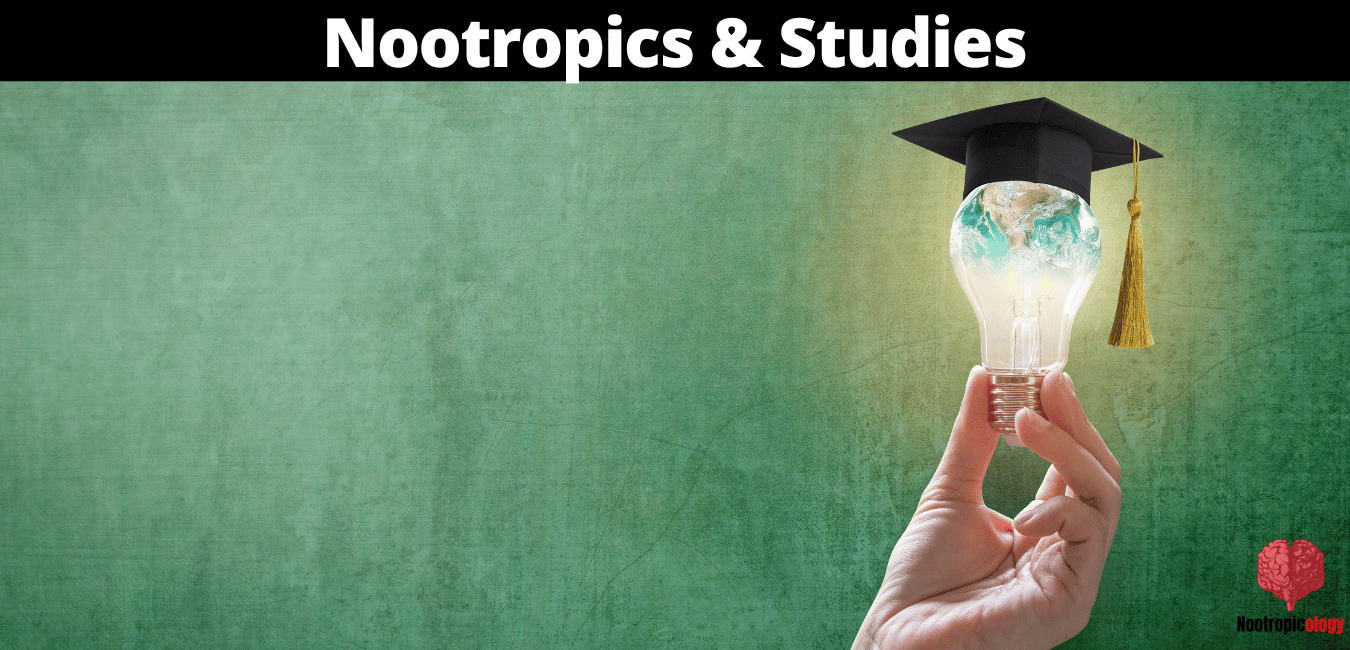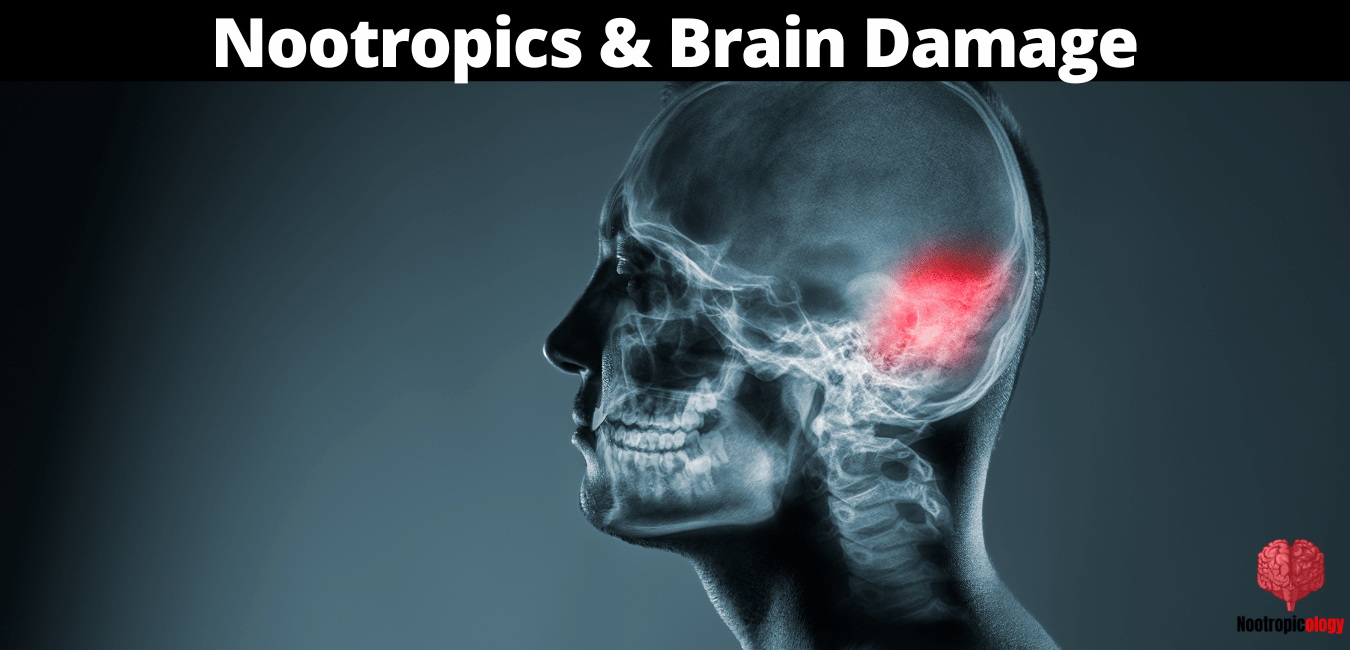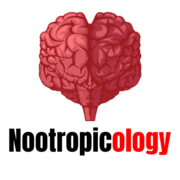Can Nootropics Cause Brain Damage?
In recent years, nootropics have gained popularity as cognitive enhancers, promising improved memory, focus, and mental performance.
However, concerns have been raised about the potential adverse effects of these substances on the brain. This article aims to provide an in-depth exploration of whether nootropics can cause brain damage, examining the available scientific evidence and relevant case studies.
So without further ado, let's dive in, shall we?
Understanding the Human Brain and Nootropics


The human brain is a complex organ responsible for various cognitive processes, including perception, memory, attention, and decision-making. It consists of different regions, each with specialized functions. The cerebral cortex, the outermost layer of the brain, plays a crucial role in higher cognitive functions. It is divided into four lobes: the frontal, parietal, temporal, and occipital lobes.
Within the brain, neurons are the primary functional units responsible for transmitting information. Neurons communicate through electrical signals and chemical messengers called neurotransmitters. The synaptic connections between neurons form intricate neural networks, facilitating information processing and transmission.
How Nootropics Work in the Brain
Nootropics interact with the brain's neurochemistry and neural circuits, influencing cognitive processes.
The mechanisms of action vary depending on the specific nootropic. Some common mechanisms include:
- Modulation of Neurotransmitters: Certain nootropics enhance the production, release, or availability of neurotransmitters such as acetylcholine, dopamine, or glutamate. This modulation can influence attention, memory, and mood.
- Promotion of Neuroplasticity: Neuroplasticity refers to the brain's ability to reorganize and form new connections between neurons. Some nootropics, such as those that target the NMDA receptor or promote brain-derived neurotrophic factor (BDNF) release, may enhance neuroplasticity. This effect can facilitate learning, memory formation, and cognitive flexibility.
- Increased Cerebral Blood Flow: Some nootropics, like vasodilators or substances that enhance nitric oxide production, can increase blood flow to the brain. Improved blood flow ensures adequate oxygen and nutrient supply, which may positively impact cognitive function.
Benefits of Nootropics on the Brain
Nootropics that enhance cognitive function often target neurotransmitter systems involved in attention, memory, and information processing. For example, substances like racetams are believed to enhance cholinergic neurotransmission, which plays a crucial role in attention and memory processes. By increasing acetylcholine availability, these compounds may improve cognitive abilities, such as focus, mental clarity, and working memory.
Other nootropics, such as modafinil, act on the dopaminergic system, which influences motivation, alertness, and executive functions. By increasing dopamine levels or enhancing dopamine receptor sensitivity, modafinil can promote wakefulness, increase cognitive stamina, and improve performance on tasks requiring sustained attention.
Memory Improvement
Nootropics that target memory enhancement often interacts with neurotransmitter systems involved in memory formation and retrievals, such as glutamate and the NMDA receptor. For instance, substances like piracetam have been shown to modulate glutamate receptors, promoting synaptic plasticity and facilitating learning and memory processes.
Moreover, certain nootropics, including omega-3 fatty acids, have been associated with improved cognitive function, including memory. Omega-3 fatty acids play a vital role in the structure and function of cell membranes in the brain. They have been shown to support neuronal health, reduce inflammation, and promote synaptic plasticity, all of which may contribute to enhanced memory formation and cognitive performance.
Mood Regulation
Nootropics with mood-regulating properties may act on various neurotransmitter systems implicated in emotional well-being, such as serotonin, dopamine, and GABA. For example, omega-3 fatty acids have been linked to improved mood and a reduced risk of depressive symptoms. These fatty acids are involved in the synthesis of neurotransmitters and the regulation of neuronal signaling pathways associated with mood regulation.
Additionally, adaptogens like ashwagandha and Rhodiola rosea have been studied for their potential anxiolytic and antidepressant effects. These substances modulate stress response systems, including the hypothalamic-pituitary-adrenal (HPA) axis and the release of stress hormones like cortisol.
By promoting stress resilience and modulating neurotransmitter activity, adaptogens may contribute to mood regulation and overall mental well-being.
Nootropics: Review of Relevant Scientific Studies on The Brain


Numerous studies have explored the effects of specific nootropics on cognitive function, memory, and mood regulation. For instance, research on racetams, such as piracetam, has shown promising results in improving cognitive performance in healthy individuals and those with cognitive impairments.[1]
These studies suggest potential benefits in attention, memory, and overall cognitive abilities, although the mechanisms of action are not fully understood.
Modafinil, a wakefulness-promoting agent, has been extensively studied for its cognitive-enhancing properties. Research indicates that modafinil can improve cognitive performance, including attention, working memory, and executive functions. It is often prescribed to individuals with sleep disorders, such as narcolepsy, to mitigate excessive daytime sleepiness and enhance cognitive alertness.[2]
Omega-3 fatty acids have been the subject of numerous studies investigating their effects on brain health and cognitive function. Research suggests that omega-3 supplementation may have positive effects on memory, attention, and cognitive performance, particularly in older adults. The anti-inflammatory and neuroprotective properties of omega-3 fatty acids may contribute to these cognitive benefits.[3]
In terms of mood regulation, certain adaptogens have been investigated for their potential antidepressant and anxiolytic effects. For example, Ashwagandha, an adaptogenic herb, has demonstrated an ability to reduce stress and improve mood in clinical trials. Rhodiola rosea has also shown promising results in reducing symptoms of depression and anxiety.[4]
While these studies provide valuable insights into the potential benefits of specific nootropics, it is important to consider the limitations of the research. Many studies have small sample sizes, use different assessment tools, and have varying methodologies, which can affect the generalizability of the findings.
Further research, including large-scale clinical trials and long-term observational studies, is necessary to establish a more comprehensive understanding of the benefits and potential risks associated with different nootropics.
The existing scientific literature suggests that certain nootropics may offer cognitive enhancement, memory improvement, and mood regulation benefits. However, the evidence is mixed, and further research is required to validate these effects, identify optimal dosages, and assess long-term consequences.
Risks of Nootropic Use on the Brain
One of the theoretical risks associated with nootropic use is the potential overstimulation of neurotransmitters. Nootropics may modulate neurotransmitter systems, such as acetylcholine, dopamine, or glutamate, which are involved in cognitive processes.
However, excessive stimulation of these neurotransmitters can disrupt the delicate balance and functionality of neural circuits. Overstimulation may lead to imbalances, causing excitotoxicity or neurotoxicity, which can result in detrimental effects on brain function and structure.
Neurotoxicity refers to the damage or death of neurons due to excessive neurotransmitter activity, potentially leading to cognitive impairments or neurodegenerative conditions.
Long-Term Effects on Brain Plasticity
Brain plasticity, also known as neuroplasticity, is the brain's ability to adapt and reorganize its structure and function in response to experiences, learning, and environmental changes. It is a fundamental process underlying learning, memory, and cognitive development.
Concerns have been raised that long-term use of certain nootropics may interfere with natural brain plasticity processes. Prolonged exposure to specific substances may disrupt the delicate balance between synaptic strengthening and pruning, potentially leading to undesired alterations in neural connectivity and cognitive function.
However, the extent and nature of these long-term effects on brain plasticity require further investigation.
Risk of Developing Dependency
Nootropics, like many substances that affect brain function, carry a risk of developing dependency or addiction. With prolonged use, individuals may develop tolerance, requiring higher doses to achieve the desired effects.
Dependence on nootropics can lead to withdrawal symptoms when discontinuing use, including cognitive and mood disturbances. Chronic reliance on these substances may have negative consequences for overall brain health and well-being.
It is important to note that the risk of developing dependency can vary depending on the specific nootropic, dosage, duration of use, individual susceptibility, and underlying factors such as genetic predispositions.
Do Nootropics Cause Brain Damage?


The question of whether nootropics cause brain damage has generated considerable debate and concern.
However, it is important to note that nootropics, when used responsibly and within recommended guidelines, are generally considered safe and do not cause brain damage.
Let's explore this topic further to debunk some of the misconceptions.
Analysis of Clinical Studies and Reports
Numerous clinical studies and reports have examined the effects of various nootropics on brain health. These studies consistently indicate that when used appropriately, following recommended dosages and durations, nootropics do not result in brain damage.
In fact, many studies have reported positive cognitive and neuroprotective effects associated with certain nootropics, suggesting their potential benefits for brain function and overall cognitive well-being.[5]
Potential Neurological Consequences
While it is true that excessive stimulation of neurotransmitter systems or the misuse of certain substances may lead to adverse effects on brain health, these concerns are not exclusive to nootropics.
Any substance, when misused or taken in excessive amounts, can potentially have detrimental effects on brain function.
It is crucial to differentiate the responsible use of nootropics within recommended guidelines from misuse or abuse, which can occur with any substance and may lead to negative consequences.
Factors That Influence Brain Damage Risk
The risk of brain damage associated with nootropic use is minimal when appropriate precautions are taken.
Factors such as dosage, duration of use, type of nootropic, and individual susceptibility have been extensively studied, and it has been consistently shown that responsible use of nootropics within recommended parameters does not cause brain damage.
- Dosage: Adhering to recommended dosages ensures that the nootropic is used in a safe and controlled manner, minimizing the risk of adverse effects.
- Duration of Use: Responsible, intermittent use of nootropics, rather than prolonged or continuous use without breaks, helps maintain a healthy balance in brain function.
- Type of Nootropic: Different nootropics have varying safety profiles. It is important to choose reputable, well-studied substances and avoid unregulated or potentially harmful compounds.
- Individual Susceptibility: Individual factors, such as overall health, medical conditions, and medication interactions, can influence an individual's response to nootropics. Consulting with healthcare professionals can help address any specific concerns and ensure safe usage.
The prevailing scientific evidence and clinical experience indicate that nootropics, when used responsibly and within recommended guidelines, do not cause brain damage.
It is essential to differentiate between responsible use and misuse or abuse of nootropics, as any substance can have negative consequences when used improperly.
My Personal Experience Using Nootropics
In my personal experience, as someone who has used nootropics for 2 decades, I have found them to be a valuable tool for cognitive enhancement. It is important to note that my experience is subjective and may not be representative of everyone's experience with nootropics.
Throughout the years, I have experimented with various nootropics to improve my cognitive abilities and enhance my productivity. I can confidently say that I haven't seen any negative effects on my brain; quite the contrary, I have noticed positive outcomes.
Nootropics have significantly improved my focus, concentration, and mental clarity. They have been instrumental in helping me stay alert during demanding study sessions and work projects. I have found that substances like racetams and modafinil have been particularly effective in enhancing my cognitive performance.
In addition, my memory retention and recall have seen noticeable improvements with the use of specific nootropics. This has been incredibly advantageous in my academic pursuits and professional endeavors, allowing me to absorb and retrieve information more effectively.
Furthermore, certain adaptogenic nootropics have positively influenced my overall mental well-being. I have experienced a reduction in stress levels and enhanced mood stability. This has contributed to a more positive outlook and increased resilience during challenging times.
While I have not personally experienced any negative effects on my brain from nootropic use, it is essential for individuals considering the use of nootropics to conduct thorough research, seek professional guidance, and make informed decisions based on their unique needs and circumstances.
- Malík, Matěj, and Pavel Tlustoš. “Nootropics as Cognitive Enhancers: Types, Dosage and Side Effects of Smart Drugs.” Nutrients vol. 14,16 3367. 17 Aug. 2022, doi:10.3390/nu14163367 ↑
- Ballon, Jacob S, and David Feifel. “A systematic review of modafinil: Potential clinical uses and mechanisms of action.” The Journal of clinical psychiatry vol. 67,4 (2006): 554-66. doi:10.4088/jcp.v67n0406 ↑
- Dighriri, Ibrahim M et al. “Effects of Omega-3 Polyunsaturated Fatty Acids on Brain Functions: A Systematic Review.” Cureus vol. 14,10 e30091. 9 Oct. 2022, doi:10.7759/cureus.30091 ↑
- Akhgarjand, Camellia et al. “Does Ashwagandha supplementation have a beneficial effect on the management of anxiety and stress? A systematic review and meta-analysis of randomized controlled trials.” Phytotherapy research : PTR vol. 36,11 (2022): 4115-4124. doi:10.1002/ptr.7598 ↑
- Leuner, Kristina et al. “Improved mitochondrial function in brain aging and Alzheimer disease - the new mechanism of action of the old metabolic enhancer piracetam.” Frontiers in neuroscience vol. 4 44. 7 Sep. 2010, doi:10.3389/fnins.2010.00044 ↑
